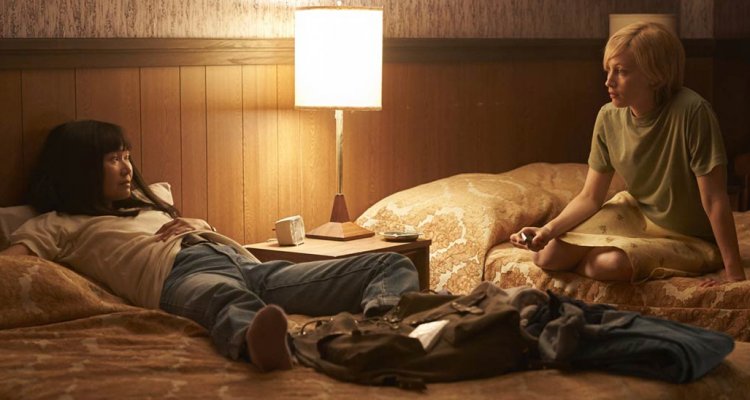Like its source material, Susan Choi‘s novel of the same name, the plot of “American Woman” is inspired by a period in the life of kidnapped heiress Patty Hearst. Patty becomes “Pauline” in the feature-length adaptation, and the terrorist organization that abducted her, the SLA (Symbionese Liberation Army), becomes the “PAL,” but the story will otherwise still inspire feelings of déjà vu for those even remotely familiar with Hearst’s life story. Unfortunately, with the film’s spare details, that’s likely the most potent emotion to be evoked here, despite good work from its cast, particularly from lead Hong Chau.
READ MORE: The 100 Most Anticipated Films Of 2019
Chau stars as Jenny Shimada, a non-violent radical who is in hiding from the government in the 1970s after she blew up a building as a Vietnam War protester. No one was hurt, but she still lives off the grid to avoid attention while still trying to keep in contact with her boyfriend, who was caught and imprisoned. Jenny works as the aide to the elderly Miss Dolly (Ellen Burstyn), when she receives an offer from one of her contacts. Someone is needed to look after two PAL activists who are running from the authorities after their California safe house was burned by the law, killing their comrades in the process. Juan (John Gallagher Jr.) and Yvonne (Lola Kirke) have escaped east, along with their former captive, Pauline (Sarah Gadon), who has since converted to their ideology.
READ MORE: Tribeca Film Festival: 15 Must-See Movies
They hide out in a secluded home in upstate New York, with Jenny venturing into small-town civilization when they need supplies. Jenny is theoretically there to keep an eye on the three fugitives, but Juan attempts to rule over all of them with threats. While Jenny grows closer to Pauline, she becomes ever wary of Juan and his hints at violence against them and the outside world.
There’s worth in offering an alternate look at a person we’re familiar with from a perspective we’re not, particularly when that view is coming from an Asian-American woman, someone rarely seen in historical films. The basis for Chau’s character, Wendy Yoshimura, spent time with Hearst, but is often overlooked in histories of what happened with the heiress and the SLA. But despite centering its story on Jenny, “American Woman” doesn’t really offer that much insight into its versions of either Yoshimura or Hearst. The drama runs just 85 minutes, and it creates just the barest sketch of its characters and events.
After working on TV shows like “Mad Men” and “The Romanoffs” with Matt Weiner, writer-director Semi Chellas makes her feature-length debut here. While “Mad Men” protagonist, Don Draper, was a cipher, enough details were given to keep audiences engaged. But the opaque and distancing “American Woman” doesn’t offer much in terms of understanding anyone or expressing much feeling—the movie leaves you with little to hang onto. You don’t feel like you know Jenny, the PAL, the radicals, nor really understand what the filmmaker is trying to say about any of it beyond her evident respect for Jenny’s character. The rest is a muddle; Juan is clearly not Latino, but it’s unclear if this is a question of casting or character hoping to appropriate a culture that isn’t his as part of his counter-culture ideology. Also, the film doesn’t provide a good sense of the passage of time or what life was like for Jenny, Pauline, Juan, and Yvonne in their time in hiding.
These actors do as much as they can with the characters they’re given. Burstyn is on screen for just a few minutes, but she gives an impactful performance in that small frame of time. Kirke is nearly unrecognizable as Yvonne (in a good way), while Gallagher seethes with menace. Gadon is excellent elsewhere, but here she’s less remarkable. Meanwhile, Chau has been on the rise since “Downsizing,” with supporting parts in “Homecoming” and “Forever,” and she’s so deserving of this lead role—it just doesn’t deserve her. She brings nuance to the part, even if it isn’t on the page.
“American Woman” is as nondescript and invisible as its subjects try and appear to the public. There’s little that’s memorable here and less to latch onto, beyond the foregrounding of an Asian woman in American history and Chau’s performance. Chellas should have so much to say about this fascinating time and woman, and the movie does suggest the challenging of some beliefs, but by the large, “American Woman” lacks conviction of any kind. [C]
Follow along with all our coverage from the 2019 Tribeca Film Festival here.

